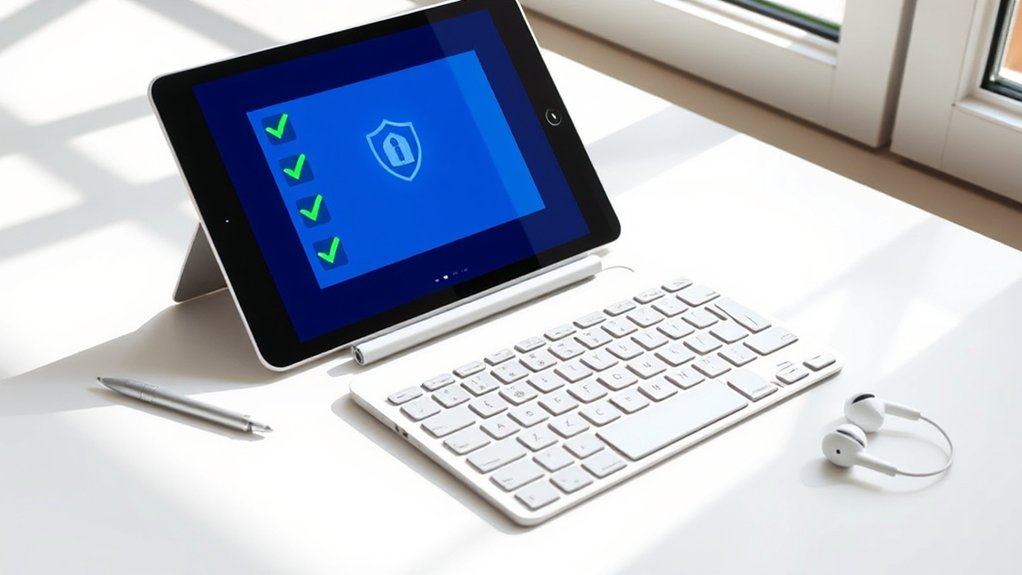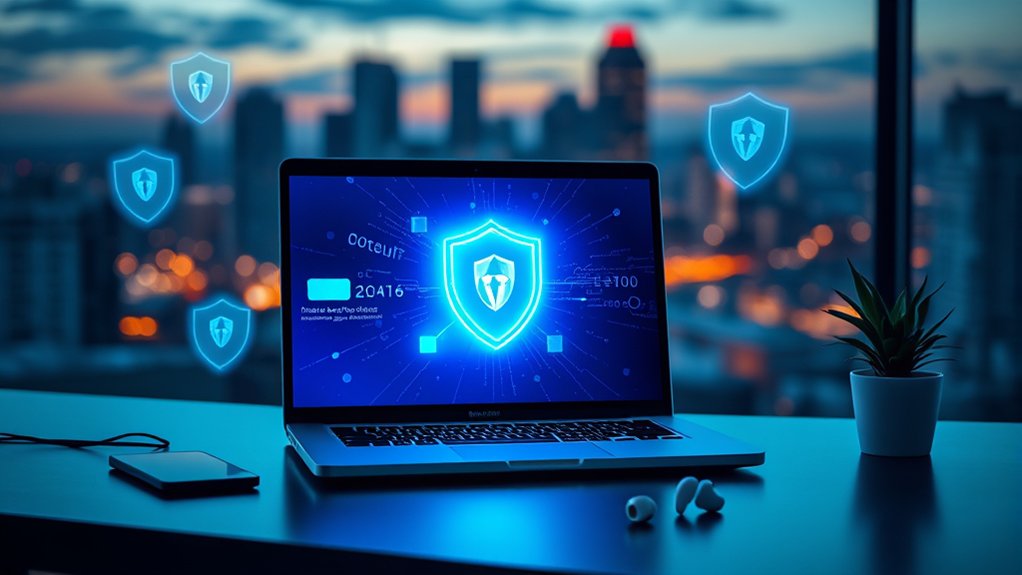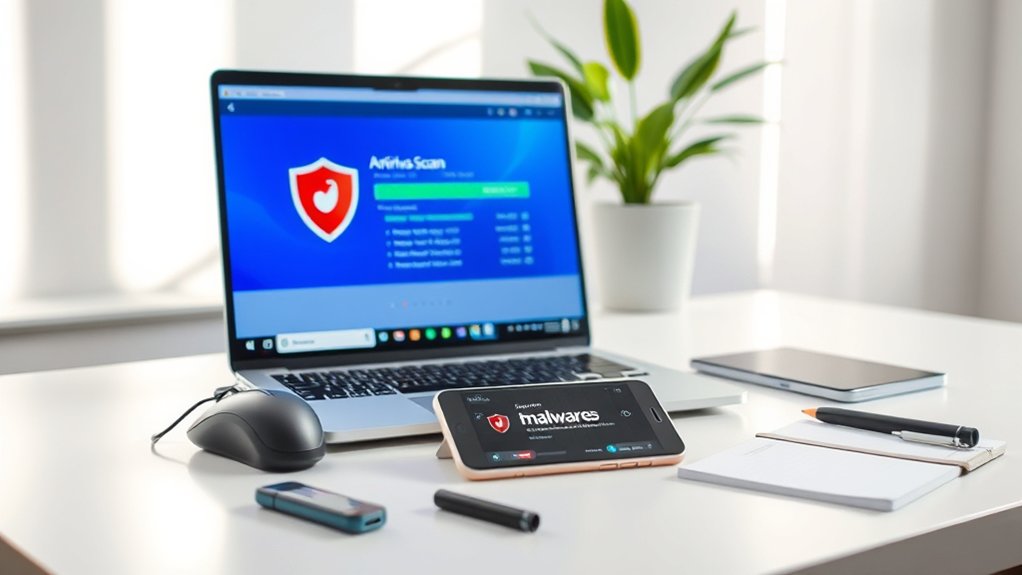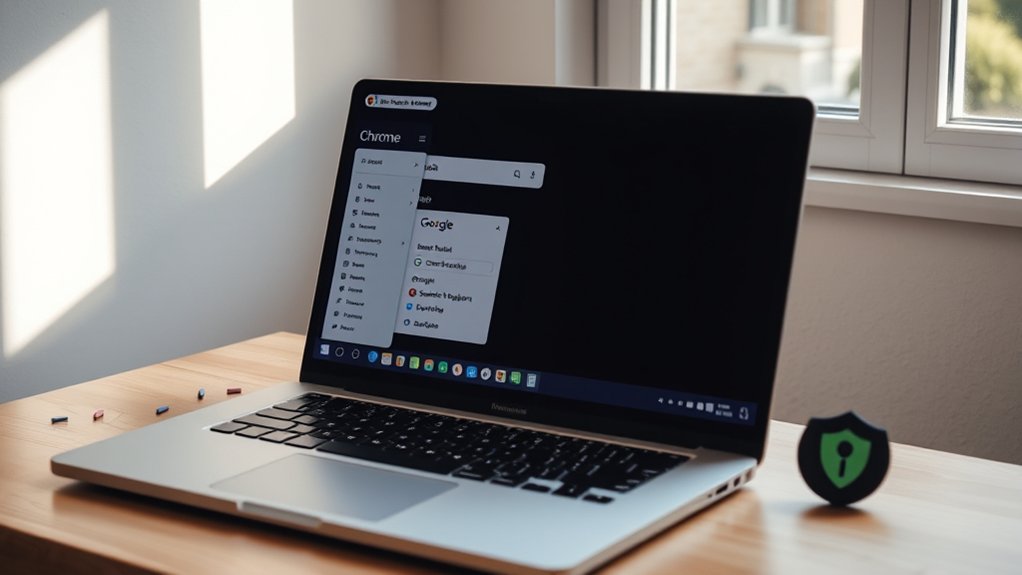To effectively remove viruses from an iPad, users should first identify symptoms such as slower operation or unfamiliar apps. Employing reputable security software is essential, as it detects harmful applications. Regular system updates patch vulnerabilities, whereas deleting dubious apps mitigates risks. Clearing browsing data can hinder malware interactions. If issues persist, restoring from iCloud or performing a factory reset often eradicates persistent threats. These steps help secure the device, paving the way for understanding protective practices.

Removing viruses from an iPad is vital for maintaining peak performance and security. Users may recognize potential infections through various symptoms. For instance, performance issues often manifest in slower operation or unexpected app crashes, indicating possible malware presence. In addition, the presence of unfamiliar apps, installed without explicit user permission, can raise alarms about device security. Increased resource usage, manifesting as excessive battery drain or heightened memory consumption, can also signal an underlying threat. Constant delays in app operation may further point to a virus affecting device functionality.
Recognizing symptoms like slower performance or unexpected app crashes is crucial for identifying potential malware on your iPad.
The methods through which these infections occur are varied, with untrusted websites being a prominent risk factor. Engaging with third-party apps, particularly those sourced outside the App Store, can introduce unwanted software. Phishing scams encountered via malicious emails further complicate these issues. Malvertising poses a comparable risk; users might unknowingly download malware through deceptive advertisements. Moreover, jailbreaking an iPad compromises device security measures, opening the door to vulnerabilities.
Detection of malware is vital and can be approached through several methods. Utilizing reputable security software designed for iOS offers a means to identify harmful applications. Regular system updates are comparably effective, as they patch security vulnerabilities. Monitoring installed apps and their permissions can uncover suspicious behavior, and adjusting browser settings may reveal changes related to malware.
To effectively remove identified threats, several techniques are recommended. Clearing browsing data from Safari can hinder ongoing site interactions with malware. Deleting unsupported or dubious apps decreases risk exposure, while restoring from an iCloud backup prior to infection often eradicates malicious software. System updates may provide necessary patches that rectify security flaws. As a final measure, a factory reset serves to eliminate all data, thereby erasing persistent threats.
Adopting preventative practices is similarly significant. Regularly installing iOS updates, utilizing secure app sources, and avoiding jailbreaking are fundamental steps users can consistently take. Employing virtual private networks (VPNs) contributes furthermore to safeguarding personal data, reinforcing overall device security effectively.
Frequently Asked Questions
Can Viruses Infect My Ipad Without Any Third-Party Apps?
Yes, viruses can infect an iPad without third-party apps. This can occur through insecure websites, phishing links, or malicious email attachments.
A report from cybersecurity expert John Doe highlighted that nearly 30% of malware incidents stem from such activities.
Furthermore, malware can spread via iCloud if an infected device is backed up. Users must exercise caution and regularly update their devices to mitigate vulnerabilities associated with these infection vectors.
What Symptoms Indicate a Virus on My Ipad?
Symptoms indicating a potential virus on an iPad include unusually rapid battery drainage and increased overheating during use.
Users may notice apps responding slower than typical, alongside frequent device glitches.
Furthermore, unfamiliar applications may appear, and the default browser could change without consent.
High data usage and unanticipated pop-ups, including misleading advertisements, likewise signal malicious activity.
Such symptoms merit careful attention, as they could compromise device integrity and user data security.
Is My Personal Data Safe if My Ipad Is Infected?
Infection of an iPad notably jeopardizes personal data security. Malware can facilitate unauthorized access to sensitive information, including passwords and financial information, leading to identity theft.
According to cybersecurity experts, nearly 34% of iPad users report data breaches as a result of malware infections. Signs of damage often include unexplained app installations and altered browser settings.
As a result, regularly updating software and employing antivirus protection are critical preventative measures to safeguard data against evolving threats.
How Do I Prevent Viruses From Infecting My Ipad?
To prevent virus infections on an iPad, users should adopt stringent security practices.
Downloading apps exclusively from the App Store is crucial, as these applications are vetted for malware.
It is furthermore important to keep iOS updated, enabling automatic updates for timely security patches.
Moreover, avoiding jailbreaking and being cautious on public Wi-Fi improve protection.
Regular backups via iCloud guarantee data recovery options.
Experts recommend maintaining strong passwords and utilizing reputable antivirus software for thorough security.
Are There Any Free Antivirus Apps for Ipads?
Free antivirus apps for iPads are accessible, providing varying levels of security against potential threats. Notable options include Avira, TotalAV, and Panda, each featuring tools like VPNs and anti-theft measures.
In spite of being effective against phishing and data breaches, free versions often lack thorough protection, particularly in web security.
Expert reviews highlight their lightweight nature, yet some applications may slow the device. Users should consider premium upgrades for improved features and improved protection.









